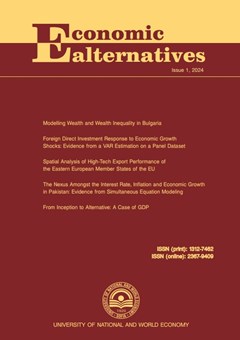The Nexus Amongst the Interest Rate, Inflation and Economic Growth in Pakistan: Evidence from Simultaneous Equation Modeling
Authors: Ijaz Uddin, Rafi Ullah
Abstract
The main objective of this empirical study is to analyze the nexus amongst the interest rate, inflation and economic growth in Pakistan: evidence from simultaneous equation modeling, for the period from 1970- 2019. The estimate of the ADF test shows that all variables are a mixed order of integration, and the Johensan cointegration estimate reveals that there exist long-run relations amongst the variables. The estimate of the robust least square shows that inflation, unemployment, money supply, exchange rate, and budget deficit, have a positive effect on GDP per capita, while interest rate, total investment, and FDI have a negative effect on GDP per capita. Moreover, inflation and exchange rate have a positive effect on interest rate, while money supply, budget deficit, and FDI have a negative effect on interest rate. Furthermore, the interest rate has a positive effect on inflation, while unemployment and money supply have negative effects on inflation. Policymakers should adopt a sound macroeconomic policy to enhance economic growth and control the interest rate and inflation.

